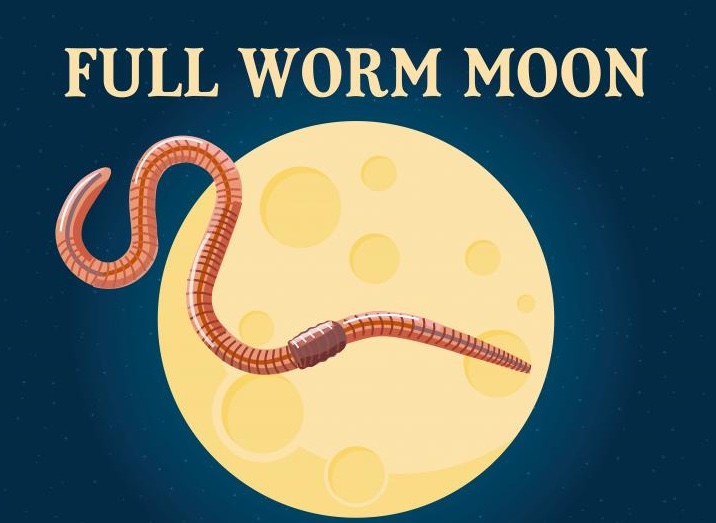And it arrives on Sunday, guaranteed to dazzle curious sky watchers, amateur astronomers and romantics alike. The Super Moon lasts for just a moment, 12:48 p.m. MST to be exact, when it will appear closest to the Earth. But don’t worry if you miss this fleeting opportunity, you will still be able to see a big, round Moon from Saturday, March 27 through Tuesday, March 30.

Did you know this weekend’s Super Moon has many names? It is most commonly called the Worm Moon. According to Native American lore, indigenous tribes reportedly named it that after the earthworms that appear as the soil warms in spring.
Another explanation for this name comes from Captain Jonathan Carver, an 18th-century explorer, who wrote that this Moon name refers to a different sort of “worm”—beetle larvae—which begin to emerge from the thawing bark of trees and other winter hideouts.

But wait, there’s more March Moon names like the Eagle Moon, Goose Moon or Crow Comes Back Moon.
Even more names refer to signs of the Spring season like:
Sugar Moon – When the sap of sugar maples starts to flow.
The Wind Strong Moon – For strong, windy days that come this time of year.
The Sore Eyes Moon – The blinding rays of sunlight that can reflect off the melting snow in late winter.
This year, because it is the first full Moon after the spring equinox on March 20, it is known as the Paschal Full Moon. No matter what it is called, it will be a sight to behold so don’t miss this it.
Comments are closed